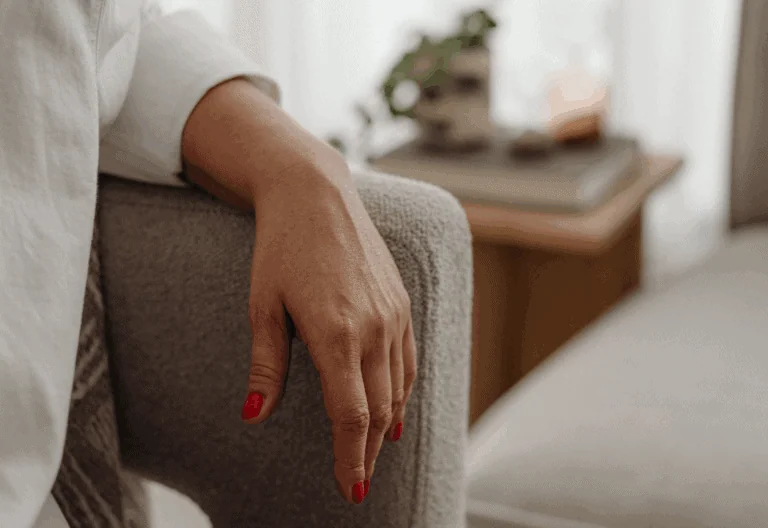Difficulties, dissatisfaction, and personal challenges throughout our lives can impact the way we perceive life, how we show up in the world, and how we think about ourselves and others.
They are inevitable. And yet, it’s important to remember that life doesn’t happen to us; it happens for us. We get to choose the kind of impact our challenges have.
Such challenges may be more conventional – things like feeling overwhelmed, underwhelmed, stuck, or dissatisfied with our lot in life. Likewise, financial frustrations or concerns about our weight also fall under the category of the everyday kind of blues that most of us suffer at some point or another.
And, the challenges we face may be as harmful or debilitating as physical or emotional pain, trauma, anxiety, depression, or grief.
Regardless of how “heavy” or “light” our burdens may seem to others, they are valid, personal, and legitimately painful.
And, distress is destructive to some extent or another, regardless of its source.
When we feel challenged, we often indulge in self-destructive behavior. That could look like: one too many glasses of wine in the evenings, shopping compulsively without any real need or desire, procrastination, unhealthy eating, or self-sabotage in its myriad of other forms.
Of course, it is human nature to attempt to avoid pain at any cost. It’s a natural fear response that is designed to protect us.
And, it is essential that we meet our pain and make a decision about how we will respond to it- because here is the thing, my friend: We DO get to decide.
Yes, life can throw us some real hardballs. Sometimes that’s as a result of choices we’ve made or beliefs we’ve held about ourselves that have shaped our world.
Other times, it just is what it is with no apparent rhyme or reason.
The question is: What are you going to do about it?
I’m not suggesting that you can turn back time, bring back a lost loved one, or change the hand the Universe has dealt you when it’s a horrific and heavily impactful one.
I am saying that you can choose how to respond. I am saying that you can choose to be a victim, or you can choose to step up powerfully and find fortitude, gratitude, and a positive attitude.
It’s only when you choose to focus on reconstruction that you can transform negative patterns, reignite your passion for living and create a sense of wholeness and wellbeing.
There are a couple of things you can do to stop reacting and start creating instead.
Get Your Gratitude On
The impact of gratitude on our psyche has been studied extensively. It’s been found that giving thanks (to the Universe, God, our higher selves, or one another) and appreciating our good fortunes, or those silver linings can help us sleep better, lower stress and anxiety, alleviate depression, and improve interpersonal relationships.
- Making gratitude lists is a good and well-proven method of accessing those benefits.
- Prayer or meditation with a gratitude focus is another.
- Giving back – some might call it “paying it forward” – is also a great way to express gratitude.
You can keep your gratitude private or share it with others. Expressing gratitude is different for every woman.
Of course, gratitude isn’t a panacea — it can’t make injustice, loss, or pain disappear entirely. What it can do, though, is shift your attitude toward whatever circumstance you are facing, gifting you with some peace.
Sonja Lyubomirsky, a professor of psychology, studies happiness and gratitude. She advises that you find what works best for you, saying, “Really think about what feels right and what feels natural or meaningful to you. Gratitude is a very rich emotion, but it’s also kind of a complicated one. Sometimes when you express gratitude, you could also feel humbled or indebted … it doesn’t always feel pleasant.” That isn’t necessarily a bad thing, though, and certainly doesn’t negate the benefits of gratitude.
Face Your Pain
Though it can be tempting to avoid pain at all costs, breathing into it, facing it head-on, and deciding how to respond gives you healthy power within, a reconnection to your purpose, and – most importantly – deep inner peace.
As Author Marianne Williamson puts it, “We’ve made feeling sad wrong. But just as a broken leg requires resetting the bone; so too emotional pain requires resetting our thinking.”
Anesthetizing with self-destructive behavior doesn’t change a thing – it only exacerbates our pain and typically makes things worse.
Sadness, anxiety, grief, boredom, dissatisfaction, melancholy, jealousy, resentment, shame, and frustration are all emotions that can motivate us to examine our lives more deeply. They can also be a catalyst for learning how to respond more positively to our situation, environment, and the people around us.
To ignore, push down, deny, or disconnect from them not only negates their value but also does us a profound disservice.
The rawest emotions in life are no less valuable than life’s most joyful feelings.
Life’s happiness path doesn’t try to bypass pain but instead confronts it and moves on.
“The only way out is through.” – Robert Frost.
By having the courage to walk through uncomfortable and painful emotions (“I was built for this: Bring it!“), we can navigate a better path forward and discover far greater strength, resilience, compassion, and courage within ourselves than we ever would have imagined.
While life can sometimes be difficult, within every adversity lies opportunity:
- To live more deeply.
- To summon our inner Amazonian warrior.
- To discover that no matter how bad something may seem at the time, hope springs eternal, and there is always a soul gift to be found.
Growing up, most of us learn that any emotion other than the positive should be shoved down and avoided.
Far from moving us toward emotional intelligence, these attitudes about negative emotions set us up for self-destruction.
Pause and reflect. When you find yourself facing challenges or discomfort, take a moment to think:
- What am I feeling?
- What is at the core of this discomfort?
- Is acceptance my best step forward, or is there something actionable that I can do to make a change?
Journal. Writing your thoughts, feelings, and emotions down will help you better understand and confront them. Furthermore, journaling can help put boundaries around a situation that may be spiraling out of control in your head.
Talk to someone. Find someone to talk to, whether a therapist, life coach, trusted friend, or family member. Sometimes, just talking about it, we can take some of the power out of it and move forward.
Finally, let go and permit yourself to be OK with being OK.
Self-Destruct or Reconstruct – It’s Up to You, My Friend
Life is filled with obstacles and challenges. That part is as inevitable as joy and satisfaction. For every soft spot there must be also a hard one – how else would we understand, recognize and appreciate the soft?
How we respond to that inevitability is what matters.
We can avoid facing our challenges with self-destructive patterns or we can learn the art of the edit, thereby creating balance, peace, and personal growth.
Here’s what I know: Each of us has the power and magic within to do just that.
Self-Image Makeover
Live Your Life With Style, Flare, and Elegance




